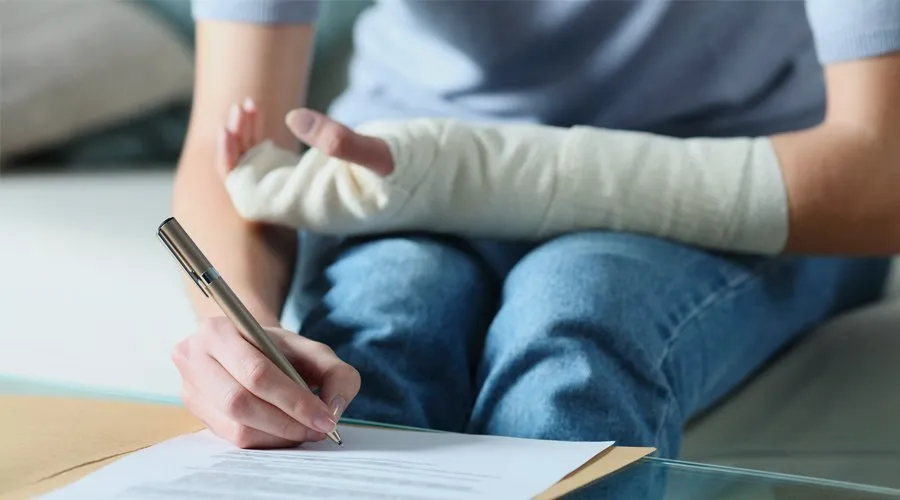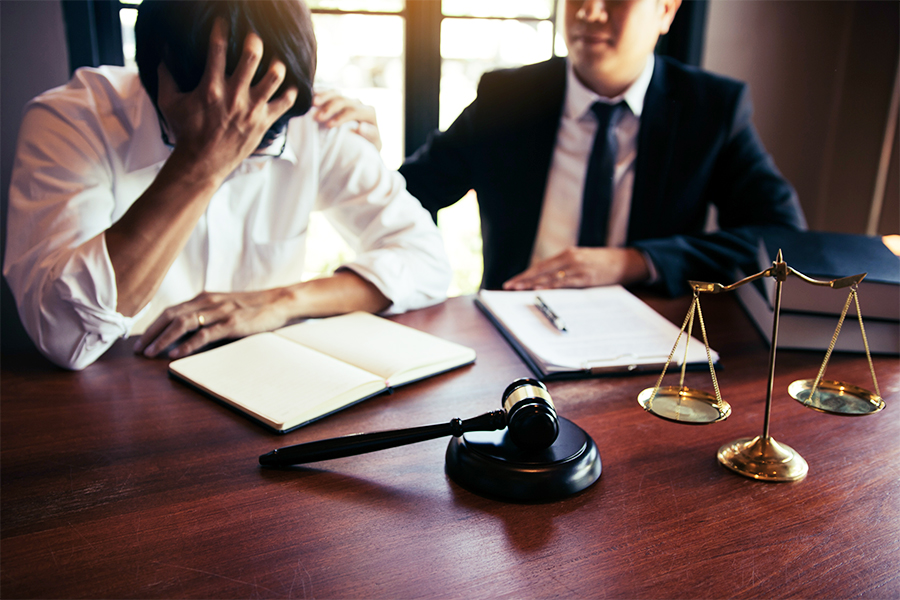Slip and fall accidents can happen anywhere, from wet floors in grocery stores to uneven pavement on sidewalks. If you’ve suffered an injury due to a slip and fall, you may be wondering if you can pursue compensation by filing a personal injury lawsuit. The short answer is yes, you may be able to file a claim and recover damages, depending on the specific circumstances of your accident.
Personal Injury Claims for Slip and Fall Accidents
To file a successful personal injury claim after a slip and fall accident, you must be able to prove that your injuries were directly caused by the negligence of another party. For example, if you slipped on a wet floor in a store, you would need to show that the store owner failed to put out “wet floor” warning signs or mop up spills in a timely manner.
Four key elements must be established for a valid personal injury claim after a slip and fall:
– Duty of care – The property owner or responsible party owed you a duty of care to keep the premises reasonably safe.
– Breach of duty – The owner or responsible party breached this duty of care through negligent actions or failure to act.
– Causation – The breach of duty directly caused your slip and fall accident. There must be a provable link between the negligence and your injuries.
– Damages – You must have suffered measurable injuries or losses as a result of the accident, such as medical bills, lost income, pain and suffering, etc.
If you can prove all four of these elements, you may be able to recover compensation through a personal injury settlement or lawsuit. An experienced personal injury lawyer can help assess the validity of your claim.
Compensation Available in Slip and Fall Claims
Depending on the circumstances, you may be able to recover damages for a variety of losses stemming from a slip and fall accident. Compensation could potentially cover:
– Medical expenses – Bills for emergency room treatment, hospitalization, surgery, medication, physical therapy, and other medical care related to your accident injuries.
– Lost income – Wages you lost due to missing work while recovering from your injuries.
– Loss of future earnings – If your injuries are permanent and impact your long-term ability to work.
– Pain and suffering – Compensation for physical pain and emotional distress caused by the accident and injuries.
– Loss of enjoyment of life – Damages stemming from loss of mobility or ability to participate in activities you previously enjoyed.
– Wrongful death damages – In the event a fatal injury results from the slip and fall. Lost companionship or income for surviving family members may be awarded.
An attorney can help you understand what types of damages might apply in your unique situation.
Contributory Negligence in Slip and Fall Claims
One defense that property owners and insurance companies often raise in slip and fall claims is alleging you were partially at fault for your own accident and injuries. States apply different rules regarding how contributory or comparative negligence by the victim can impact a personal injury claim.
In pure contributory negligence states, even 1% of fault assigned to you as the plaintiff can bar you from recovering any damages. In modified comparative negligence states, you may still recover if your fault was under a certain threshold such as 50%. In pure comparative negligence states, your damages may be reduced by your percentage of fault, but you can still recover something.
An experienced slip and fall attorney will know how state negligence laws apply and can fight to minimize any contributory negligence asserted by the defense. Thorough accident investigation and evidence gathering can also help dispute allegations that the victim was partly at fault.
What if I slipped in a store?
Stores owe customers a duty of reasonable care to maintain their premises safely. Failure to promptly clean up spills or wet areas can show breach of this duty. Stores may argue customers should have seen and avoided the hazard however.
What if I slipped on a sidewalk?
Municipalities can be held liable for poorly maintained public walkways with cracked or uneven pavement. However, the concept of sovereign immunity may limit damages in public slip and fall claims.
How long do I have to file a claim?
Every state has strict statutes of limitations dictating the deadline to file a personal injury lawsuit. For slip and fall claims, this deadline may range between 1-6 years depending on jurisdiction.
Should I accept the insurance settlement offer?
You should consult an attorney before accepting any settlement offer. Insurance companies often make lowball offers hoping injured victims will accept less than full damages. An lawyer can negotiate for a more favorable settlement.
Is a slip and fall considered a personal injury?
Yes, a slip and fall is considered a premises liability personal injury when it is caused by the property owner’s negligence. Like any personal injury, you can claim damages for medical bills, lost wages, and other losses.
Conclusion
Slip and fall accidents are one of the most common causes of premises liability personal injury claims. If you’ve suffered any type of injury in a trip and fall, you may have valid legal grounds to pursue compensation for your damages. An experienced personal injury attorney can advise you on the strength of your potential slip and fall claim based on a detailed review of the accident circumstances and evidence. With legal representation fighting on your behalf, you can recover the maximum compensation you deserve from a negligent property owner or responsible party.







